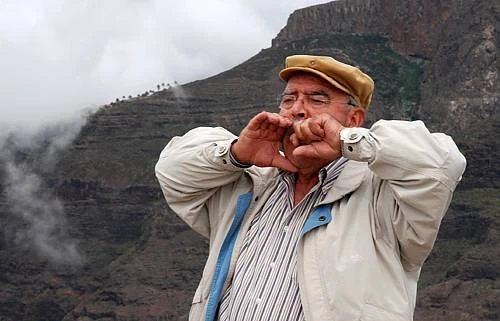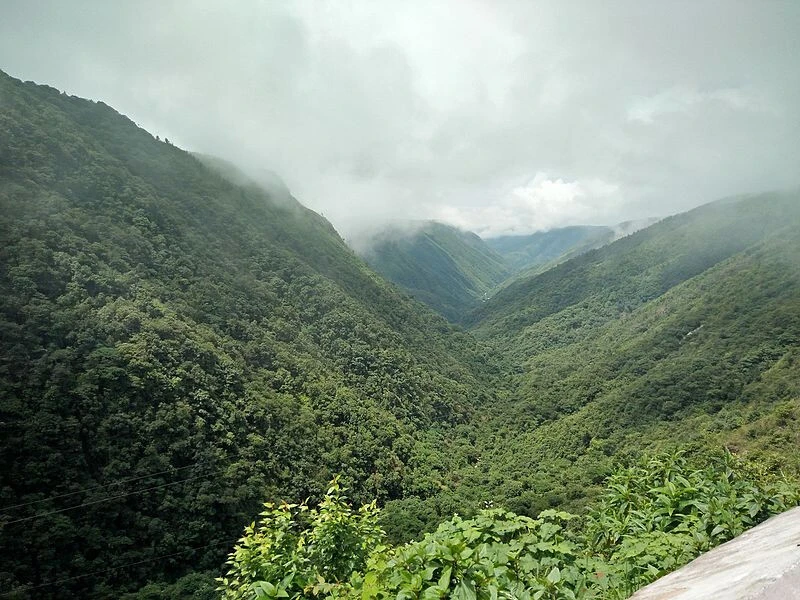There are still some regions on Earth where non-verbal language is the basic mean of communication.


Humans are visual creatures and filter the world according to what they see first because their subconscious mind is programed to read things visually first and foremost.
Words convey ideas but action portrays emotion that binds us together into societies rather than any written or spoken words, that typically convey the rules or protocols. This makes non-verbal communication extremely important whether in our day-to-day communication or in professional setting communication.
If you go to someone’s house and he/she verbally tells you that they are happy that you came, but don’t smile, will you believe that they are really happy? Most likely, you won’t.
Non- verbal communication indicates what a person is thinking and feeling, sometimes in contradiction to what they are saying. When we speak in person with someone, the biggest factor of our communication isn’t our words but these elements that are called non-verbal communication.
There are still some regions on Earth where non-verbal language is the basic mean of communication.
Oroo: Penan's Secret Forest-Language

The Penan people of Malaysian Borneo have developed a secret forest language called ‘Oroo’ that utilizes sticks, leaves, vines, and other debris to create symbols and signs to alert travelers to certain dangers.
They can also be used to request help and set up activities with fellow kin. The Penan’s secret language doesn't involve pens, paper, Wingdings, or even ancient Egyptian Wingdings.
Instead, it uses the environment itself: sticks, leaves, vines, and other forest stationery. For example, the image above says, “I’m a friend, follow me this way. Or wait for me to return.”
Whistling language of ‘bird village’

In quaint Kuşköy aka "bird village" in Turkey, a few hundred people still converse using the traditional method of whistling. A method innovated more than four centuries ago.
The bird village is a lovely, vibrantly verdant village in the Pontic Mountains.
In a region, this "kuş dili" or "bird language" works just fine for some. It's like regular Turkish, except transmogrified "into varied-pitch frequencies and melodic lines" of about 20 distinct sounds.
By whistling, villagers can communicate with each other across long distances, more than half a mile.
The whistling language is, however, fading due to cell phones and other modern contrivances.
Esoteric "Quipu" Llama-Fiber Quilt

A Quipu (also spelled khipu) was an ancient accounting tool that the Incas used—and predecessor societies—for bookkeeping.
Quipu literally translates to “knot” in Quechua. Many ancient Andean cultures used this knot system, referred as “talking knots,” which served as a writing system. This was crucial since there was no formal written language.
Quipus were used since 2.500 a.C. and were used until the spanish colonization, because the colons destroyed them.
A quipu could have as many as 1,500 strings, and every aspect conveyed some sort of information: the type and number of strings, knots, their position, color, how they were twisted, and other relations.
In simple words, the knots represent numbers via the decimal system.
Pirahã: Language Without Numbers

Ancient peoples were, intellectually, as complex as we are. They simply had different things to think about. Hunting and gathering for a living, for example, is hard. It requires a significant level of skill and constant paying attention to stuff. You can’t do that if you’re simple and stupid.
That said, there are scripts we can’t read not because they’re next-level complicated. It’s because figuring that stuff out is inherently hard and we have little or no evidence to go on.
The Amazonian Pirahã do not have numbers. This is unthinkable in our modern mathematical world. Only one non-native person really understands Pirahã, which is also the name of the language.
According to Everett, the Pirahã do not care about numbers, religion, other languages. They live in the "here and now" without recorded history. Their language is just as bare bones. It doesn't confuse one with a variety of letters. It only seems to utilize about 8 consonants and 3 vowels.
Without numeracy, the Pirahã only have words for certain amounts: small, more, and a bunch.
Musical, Anti-Demon Language

Kongthong, a gorgeous village acclaimed for its natural beauty and its unique tradition, 'Jingrwai Iawbei.' You would often hear curious whistles and chirrups echoing through the jungles in Kongthong. Closer inspection reveals that it is not birdsong, but rather people singing to each other.
According to tradition, each newborn in Kongthong is assigned both a regular name and a distinct melodious tune at birth by their mother. While their name is only used for official purposes, this tune becomes their identity to which they respond throughout their lives.
The mother must come up with a different tune than the existing ones to ensure that the child's identity remains his own. Another intriguing aspect is that the villagers are accustomed to communicating through music.
Each native person has a distinct tune for calling each other, and this custom has been passed down through generations.
The custom is known as "jingrwai lawbei," which translates as "song of the clan's first woman," referring to the Khasi people's mythical original mother. The lullaby has no words because it is only a hum that the villagers can understand.
Song names can be 30 seconds or so.
As per an old legend, Kongthong's musical call signs were devised to save villagers' souls from folkloric threats. The forests and rivers hereabouts are home to malefic spirits and demons, which can only infest mortals upon hearing their spoken names. So song names kept demons at bay.
Security forces kill 22 more terrorists during pursuit operations in Balochistan: sources
- 13 گھنٹے قبل
Rose breaks 36-hole Torrey Pines mark, up 4 shots
- ایک دن قبل
Israel reopens Gaza’s Rafah border crossing to Egypt, with limits
- 13 گھنٹے قبل
Field Marshal vows to strengthen Pakistan-Libya relations
- 7 گھنٹے قبل

Gold prices continue to drop in Pakistan, global markets
- 14 گھنٹے قبل
Fire breaks out at mobile market in Karachi’s Saddar
- 7 گھنٹے قبل
Iranian president orders start of talks with US: local media
- 10 گھنٹے قبل
Pakistan team departs for Sri Lanka for T20 World Cup
- 10 گھنٹے قبل
PM urges KP govt to fulfill its responsibilities for law and order, health, education sectors
- 13 گھنٹے قبل

Security forces committed to eliminate anti-Pakistan proxies: Attaullah Tarar
- ایک دن قبل
Oracle shares fall as investors assess up to $50 billion AI funding plan
- 9 گھنٹے قبل
Pakistan vigorously working on economic reform agenda, PM tells WB chief
- 12 گھنٹے قبل






